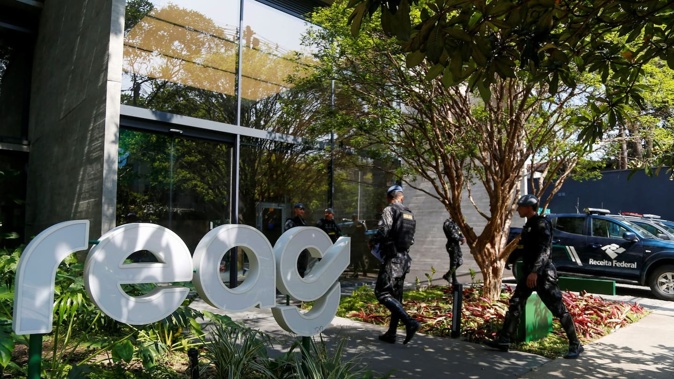
Brazilian police cracked down today on a sprawling criminal network that defrauded motorists at petrol pumps and concealed billions of dollars in illicit earnings in cahoots with financial companies.
As more than 1400 police officers deployed to execute hundreds of warrants countrywide, President Luiz Inacio Lula da Silva hailed “the largest response from the Brazilian state to organised crime in our history”.
The group allegedly laundered money for the First Capital Command (PCC), one of the country’s most powerful gangs engaged in cocaine trafficking from South America to Europe, prosecutors said.
According to the Federal Revenue Service (RFB), the network is alleged to have hidden ill-gotten gains of some 52 billion reais ($16.3b) in investment funds and fintech digital companies in four years to 2024.
It controlled four refineries and allegedly diluted fuel products to increase yield and cheated clients with pumps that supplied less fuel than indicated.
Irregularities were identified at more than 1000 service stations in 10 of Brazil’s 26 states, according to officials.
The group is alleged to have controlled elements of fuel supply all the way from import, production, distribution and marketing to the end consumer, and had more than 1000 fuel delivery trucks of its own.

The group allegedly concealed US$9.6 billion in illicit earnings and controlled elements of the fuel supply chain. Photo / AFP
“Investigations indicate that the sophisticated scheme devised by the criminal organisation, by laundering the proceeds of crime, generated significant profits in the fuel production chain,” the statement said.
The operation was carried out in a dozen states including Rio de Janeiro and Sao Paulo – the South American giant’s financial hub.
In the first hours, police arrested five people and seized 1500 vehicles, 192 properties, two boats and more than 300,000 reais in cash.
Brazilian police released images of a mass deployment of officers in Sao Paolo’s Faria Lima Ave, where many financial institutions are headquartered.
According to Lula, the investigation had “allowed for tracking the entire chain and targeting the financial core that sustains these practices”.
He added: “Our commitment is to protect citizens and consumers: to cut off the flow of illicit money, recover resources for the public coffers, and ensure a fair and transparent fuels market, with quality and fair competition”.
According to the revenue service, the PCC gang controlled “at least 40 investment funds” worth about US$5.5b. The funds were used, among other things, to purchase ethanol plants to produce fuel sold at service stations controlled by its members.
Some station owners who sold their establishments to PCC members “did not receive the transaction amount and were threatened with death” if they insisted on payment, it said.
Investigators said the PCC was also involved in illegally importing methanol, a “highly toxic and flammable” substance that was then mixed with ethanol, which Brazil produces mainly from sugar cane, and sold as car fuel.
One of the fintech companies implicated in the fraud acted as a “parallel bank” and received nearly 11,000 suspicious cash deposits in 2022 and 2023, according to the RFB.
The financial companies under investigation allegedly allowed clients to transfer money clandestinely, added the prosecutor’s office.
Organised crime represents an immense challenge for Brazil’s security forces, with a plethora of gangs involved in drug trafficking, illegal logging, extortion, and other rackets.
Brazil is South America’s biggest producer of petroleum and other liquid fuels, and the ninth biggest in the world, according to a 2023 report of the US Energy Information Administration (EIA), based on 2021 data.
According to the International Energy Agency, it is the second biggest biofuels producer in the world.
-Agence France-Presse
Take your Radio, Podcasts and Music with you









